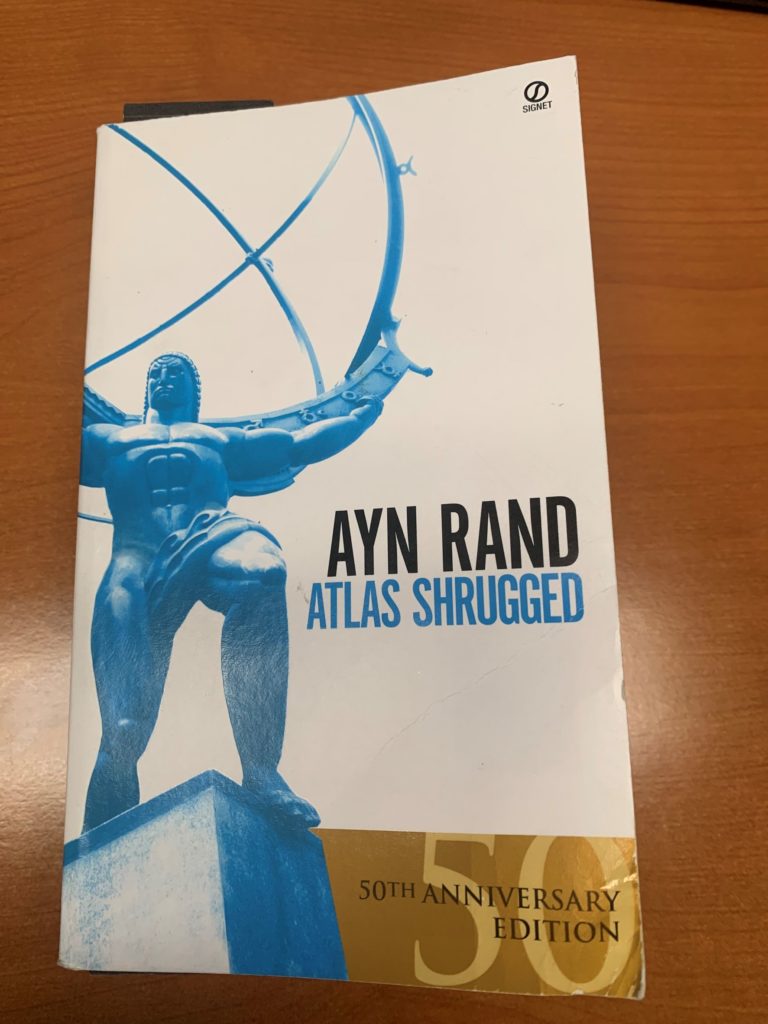And here we are my friends, the end. It has been seven long months of mostly Fridays analyzing this very long book. I should say, I am going to have one more and that will be my total book summary next week. I will stop looking at each chapter and themes but consider the book as a whole.

I don’t want to completely ruin the ending so I am not going to talk about what exactly happened, even in summary. But, what I will say is that the ending didn’t fully fit into the flow of the rest of the book (to me). That is all I am going to say about that.
The thing that I am going to talk about today is the symbolism of the Taggert Transcontinental bridge across the Mississippi. This bridge has been mentioned in many chapters throughout the book. I want to talk about what it means and what it doesn’t.
As the story goes, the bridge was built in 1885. It was originally forbidden by the barge companies running up and down the Mississippi river. Nathaniel Taggert was even sued and lost in his ability to build it. It wasn’t until the Supreme Court ruled on the matter that he eventually won the ability to build the bridge. And so he did “with his bare hands’ as the story goes.
Apparently, there are very few crossings of the Mississippi river and this bridge is one of them. Throughout the book as things progressively got worse, there was always hope because the bridge still stood and was functional. Most of the track problems seemed to happen in the mountain west or southwest. The fact that the bridge was still available allowed the possibility of transcontinental service by rerouting around the problem areas.
It is said that Rand developed a psychological discipline called Objectivism. In a nutshell, it is the use of reason and logic as a basis for belief. I suppose that this is different than the Freudian school which are the three personalities or the Frankl school of experiential development. From a logical basis, I can understand that bridge functioning = potential hope. But I really see the error in that line of thinking is really too simple of an analysis.
Just think using a simple example. I am still alive so therefore I have a chance at becoming an millionaire. What I didn’t say is that I haver terminal cancer and that I am on life support. Yes, there is a chance that someone could hand me a lottery ticket and I could become an instant millionaire in the next drawing. It is possible. What isn’t said is the probability is almost zero. Even if that did happen, so what. I wouldn’t live long enough to cash it in. I wouldn’t live long enough to spend it or possibly write it into my will to give it away.
I don’t have a problem with Objectivism per se. It seems like a perfectly fine way to run as railroad as they say. But, it does seem to be a fatal character flaw with Dabny and it is certainly no proof that this is a valid discipline; the very idea that Ojectivism is based. Now, I don’t want to get all philosophical, this is an area that I have little education or training. But, I believe that logic only exists on facts and facts only exist on what is, not what could be.
So as in life, decisions have to be made. Facts forecast probable outcomes and those are the basis of decision, not facts themselves. Each decision is a gamble based on probability, risk and potential reward. Logic by it’s nature cannot be involved with uncertainty. That would mean that A may not result in A and because A might eventually equal B or A might equal C.
Just like I could win the lottery on my deathbed, so could a catastrophic event happen in business or government. Near certainty is not certain, it is almost likely. This is where the saying ‘barring uncertain circumstances’ comes from. On one hand, I admire the never give up mindset. But, I will say this is the attitude of running an empire, not creating one. Because I believe that you have to quit things that don’t work or won’t work.
End Your Programming Routine: As we wrap up our time here with this book, I have to say it has been an amazing journey for me. My eyes were already open, but it is so strange to read events of fiction written over seventy years ago coming alive in real or near real time. I think if you asked people fifty years ago, this was a playbook of what not to do. Now, it seems like a playbook of what is happening. That is sad. What you do about it is be informed on the issues, but live your life for yourself and not others, just like John Galt.
Recent Comments